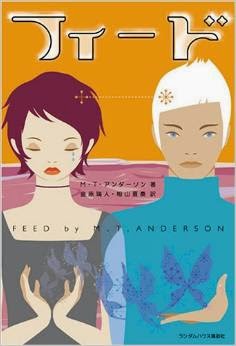先日、ユーティカのダナム公共図書館の
ブッククラブに参加しました。
…といっても、今、ねこは
ユーティカにいるわけではないので、
なんと、Skypeでの参加です。
ネットがあれば、ニューヨークにいても、
ミラノにいても、サントリーニ島にいても、
イスタンブールにいても、
東京にいても、こんな風に
図書館のメンバーでいられるんですね。
図書館とブッククラブについては、
2月に記事を書いているので、
興味のある方は、まず、
こちらをご覧くださいませ。
http://interesting-languages.blogspot.jp/2015/02/blog-post_27.html
さて、今回の課題図書は、
"The Hitchhiker's Guide to the Galaxy"です。
キンドルを使って頑張って読んでいたのですが、
どうにも時間が確保できず、
読み終えられないと判断したため、
急遽、日本語訳の電子書籍を入手し、
一気に読みました(汗)。
邦題は「銀河ヒッチハイクガイド」です。

今回の質問項目はこんな感じでした(※日本語訳は一部簡略化しています)。
1. "Hitchhiker's Guide"makes fun of a lot of things, but are there any things that this book takes seriously? Are any of the characters treated seriously? Are any institutions (like businesses, governments, or churches) treated seriously? Or is everything made fun of here?
「銀河ヒッチハイク」は、いろいろなことを笑い物にしているが、この本が真面目に捉えているものはあるか? 冗談抜きに描かれているキャラクターはあるか? 企業や組織、教会などの団体で真面目に描かれているものはあるか? あるいは、すべてが物笑いの種にされているか?
2. "Hitchhiker's Guide" is full of digressions and little stories that are set into the larger story. For instance, there's the story of the ballpoint planet in Chapter 21, or the story about Earth that Slartibartfast tells Arthur. Do you enjoy these digressions? Do they take away from the pacing of the story? Did you ever find it confusing to follow the many different plots and digressions going on? Or are some of these digressions just regular flashbacks that fill in information we need?
「銀河ヒッチハイク」には余談や小話がたくさんあり、それが大きな物語に組み込まれているが、こういう余談は面白かったか? 余談は話の流れを阻害したか? 複数の異なるプロット(筋)や余談があって混乱したか? あるいは、こういった余談は、必要な情報を提供するための単なるフラッシュバックとして捉えられるか?
3. Who do you think is the most important character in this book? Is there a hero/heroine here? Is there a character that you care about more than the others? Are there any villains?
この本で最も重要なキャラクターは誰か? ヒーローやヒロインはいるか? 特に好きなキャラクターはいるか? 悪役はいるか?
4. Do you need to know about science fiction to find this book funny or meaningful? Were there any times where you felt bored because Adams was using (or abusing) some science fiction idea? Or is the science fiction aspect not really the focus here?
この本が面白いとか有意義であると判断するためにはSFについての知識が必要か? 著者がSF的アイデアを使用(あるいは乱用)しているために、退屈に感じた部分はあるか?
5. Does this book seem particularly British to you? Is there a particular style of humor that seems British? Does this book remind you of other comedies that you've read or seen?
この本はイギリス的だと感じたか? イギリス的だと感じるユーモアのスタイルがあるか? この本を読んで何か他のコメディーを思い出したか?
6. Douglas Adams may be Jokey McJokerson, but in interviews he noted that he wanted things to make sense. For instance, he needed Arthur to understand what people said, so he spent a lot of time thinking about the Babel fish and how he could describe it so it would make sense, both to Arthur and to the reader. But are there things that don't make sense to you here? Are there issues that seem like they are purely here to make us laugh? Does that change the way you read?
著者は読者に理解をしてもらうことを重視して、登場人物に説明させるなどの方法を取っているが、理解できなかったところはあるか? 単に読者を笑わせるためだけに書かれたこともありそうか? それによって読み方は変わるか?
そして、以下は、どの本についても
共通で尋ねられる質問項目です。
7. Were you satisfied with the ending of the book?
納得のいくエンディングだったか?
8. Would you recommend this book to a friend?
この本を友人に薦めるか?
9. Would you read another book by this author?
この作者の他の作品を読んでみたいか?
10. Out of 5 stars, what would you rate this book?
5点満点で何点をつけるか?
1~6については、正式に議論されたというよりは、
なんとなく各自が感想を述べつつ、
気になった質問について触れるという感じでした。
ねこは今回、途中から日本語で読んだため、
原文と翻訳された文章の
印象の違いなどについても
皆さんにお伝えしてみました。
ブッククラブでは、具体例までは
挙げることができなかったのですが、
このブログでは、ひっかかった文章について
もう少し具体的に書いてみたいと思います。
この本の著者は、
ちょっと変わった形容詞の使い方をしたり、
風変わりな説明を書いたりします。
なので、訳文にはその苦労のあとが
見受けられました。
以下は、なんだか日本語として
読みにくいと感じた文章の例です。
そのなんだかわからないものは、怪物じみた黄色さで空を飛び過ぎていく。気もひしゃげそうな轟音をあげて空を引き裂き、たちまちかなたへ飛び去っていく。あとに残された真空に空気が殺到し、その衝撃音で耳が2メートルも頭蓋骨にのめり込みそうだった。
Whatever it was raced across the sky in its monstrous yellowness, tore the sky apart with mind-boggling noise and leaped off into the distance leaving the gaping air to shut behind it with a bang that drove your ears six feet into your skull.
船が空中に浮かんでいるさまは、レンガが絶対に浮かばないさまにそっくりだった。
The ships hung in the sky in much the same way that bricks don't.
そのとき、かすかなささやきが聞こえた。突然の空間のささやき、開けた場所の環境音だった。
Then there was a slight whisper, a sudden spacious whisper of open ambient sound.
片隅には一台のロボットが背を丸めてうずくまっていた。輝くブラシ仕上げステンレススチールの頭を、輝くブラシ仕上げステンレススチールの膝のあいだに力なく垂らしている。
In one corner a robot sat humped, its gleaming brushed steel head hanging loosely between its gleaming brushed steel knees.
1マイクロ秒の間をおき、細かい計算に基づいて声の高さと調子を微調整して(人が腹を立てて当然と思う限界を越えないように)、人間のやることなすことに対する根深い軽蔑と恐怖をそのひとことに込め、マーヴィンは言った。
With a microsecond pause, and a finely calculated micro-modulation of pitch and timbre -- nothing you could actually take offense at -- Marvin managed to convey his utter contempt and horror of all things human.
翻訳者は何十冊という訳書を出している
ベテランの方なので、
訳文について、どうこうツッコミを
入れるつもりはありません。
自然な日本語にしようと思ったら、
原文のニュアンスを犠牲にすることになるし、
原文に忠実に訳そうとすると、
読みにくい日本語に
なってしまうのだと思います。
字幕の翻訳では、通常、
違和感のある説明などは、
そのまま訳すことはせず、
流れを重視して意訳します。
字幕は字数制限があり、
「一瞬見ただけで理解できる」
ということが重要であるため、
原文から逸脱しない範囲で、
「ひっかかりをなくす」ことが
求められるのです。
でも、小説の場合、基本的には
字数の制限はないはずなので、
どこまで原文に忠実に訳せばいいかの
判断は本当に難しそうですね。
ところで、来月のブッククラブについてですが、
課題図書は、M. T. Andersonの
"FEED"に決まりました。
日本語訳も出ていますが、
今回こそは、まず英語で
読破したいと思います!
そのあとで、読み比べもしたいなぁ…。


